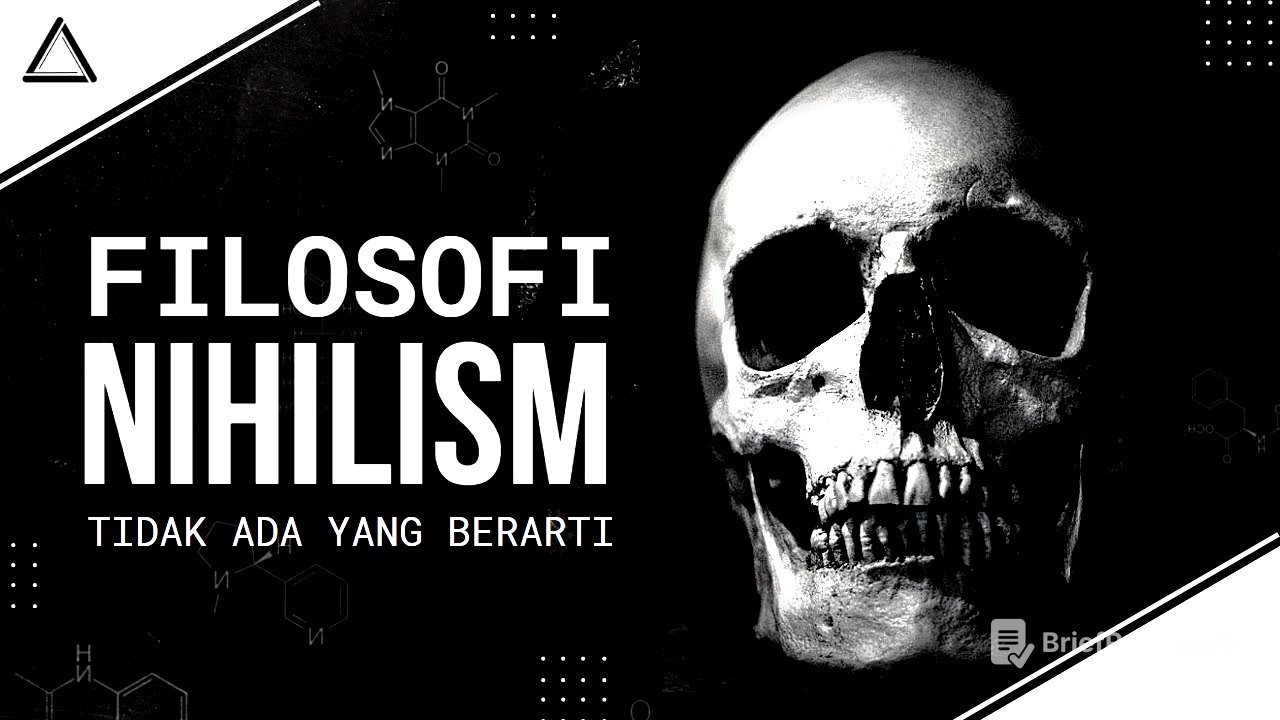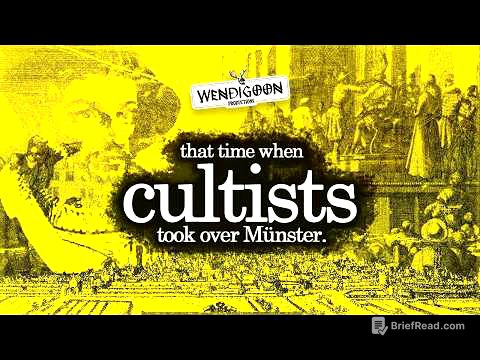TLDR;
This video explores the concept of nihilism, addressing existential questions about the meaning of life and our purpose in the world. It examines how nihilism views traditional values and beliefs as meaningless, leading to a potential crisis of purpose. The video also discusses historical perspectives on nihilism from thinkers like Kierkegaard and Nietzsche, differentiating between passive and active nihilism. Ultimately, it suggests embracing nihilism as a means to create personal meaning and live more freely, unburdened by external expectations.
- Nihilism questions the inherent meaning and purpose of life.
- Existential nihilism focuses on the meaninglessness of existence.
- Embracing nihilism can lead to personal freedom and the creation of individual meaning.
Pembukaan [0:00]
The video starts by posing fundamental questions about existence, such as our purpose in the world and whether there is a transcendent reason for our being. It reflects on the common life path of education, career, family, and retirement, questioning if life is merely about survival or waiting for death. The speaker highlights the fleeting nature of existence and the difficulty of being remembered, even with significant impact. The core issue is that without knowing our origins or destination, it's hard to find significance in our present actions.
Konsep rumit dalam dunia [1:52]
The host explains that thinkers have long tried to answer existential questions, leading to various beliefs and concepts. However, these complex ideas can be challenged by the concept of nihilism, which questions the foundations of religion, love, and life itself. For example, religions propose that our actions determine our afterlife, while others find meaning in relationships or simply in being alive. Nihilism, however, suggests that all actions, suffering, and experiences are ultimately meaningless.
Nihilisme dan krisis eksistensial [2:59]
The speaker notes that most people experience nihilistic thoughts at some point, feeling a lack of purpose or meaning in life. This often occurs when questioning established beliefs and values. As we mature, we develop our own values based on new experiences, questioning the "whys" behind our beliefs. This questioning can lead to a point where answers are no longer available, contrasting with animals that live instinctively without questioning their existence. Humans, with their advanced brains, are both blessed and cursed to ask questions that can lead to an existential void.
Apa itu Nihilisme [4:43]
Nihilism is defined as the belief that there is no grand design or purpose, where nothing is believed and nothing matters. The video focuses on existential nihilism, which is the understanding that life has no inherent purpose or meaning. While there are different types of nihilism, such as political, ethical, and aesthetic nihilism, the discussion centers on the existential aspect.
Sejarah konsep Nihilisme [5:52]
The video references Kierkegaard, who, while not explicitly using the term "nihilism," described a similar concept as "leveling," where individuality and uniqueness disappear, leading to meaninglessness. Uniqueness provides value and fulfillment, and when everything is the same, there is no meaning. Nietzsche's concept of perspectivism is also mentioned, illustrating that knowledge is tied to individual perspective, leading to the idea that there is no objective truth.
Kepercayaan [6:51]
The speaker suggests that returning to science or philosophy may not resolve existential questions, as they often lead to more questions or complex frameworks. To maintain sanity, one might need to believe that life has meaning, even without concrete evidence. Belief, though irrational, can provide answers and make life more bearable.
Arti bagi diri sendiri [7:28]
The video questions whether we need an eternal, objective goal for everyone or if we should seek meaning for ourselves based on our individual situations. In a world without inherent meaning, we can still create our own. Nietzsche's concept of the Übermensch (Overman) is introduced, describing someone who is self-mastered, self-created, and not bound by external rules. This individual confronts nihilism and protects themselves from external ideologies. Confronting nihilism is essential to truly understand the values and ideals we hold.
Mencintai kenihilan [8:34]
The video explores how to embrace nihilism. It argues that a universe without objective truth can be liberating, but societal attitudes often make it a problem, leading to depression and hopelessness. However, nihilism doesn't have to be negative; it can free us from taking things too seriously. The speaker quotes Emil Cioran, stating that the fact that nothing matters makes meaninglessness meaningless. Camus suggests that the nothingness of life should not lead to despair but to living life to the fullest, maximizing experiences. This mindset allows for freedom, no fixed direction, and living in the present.









